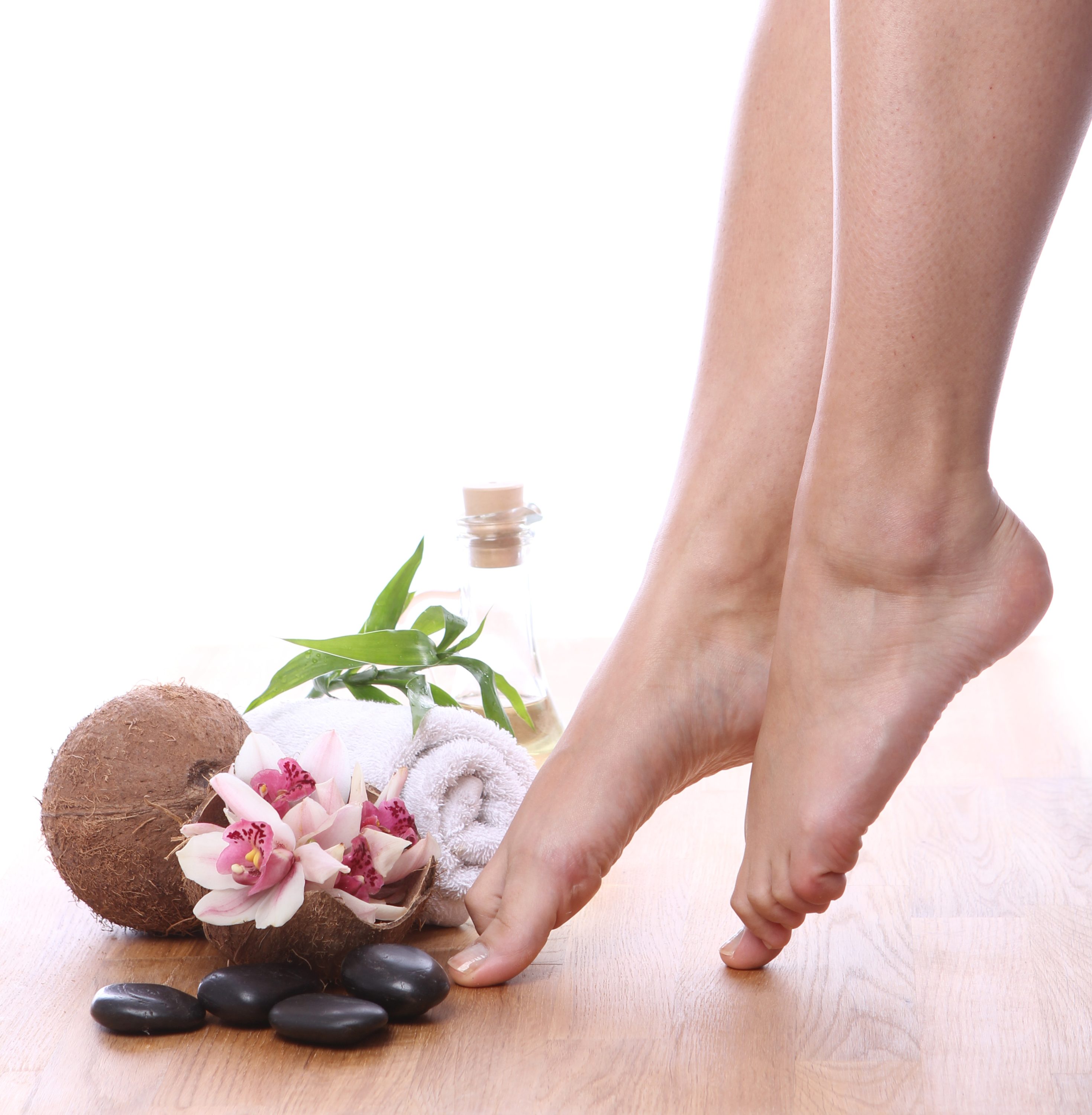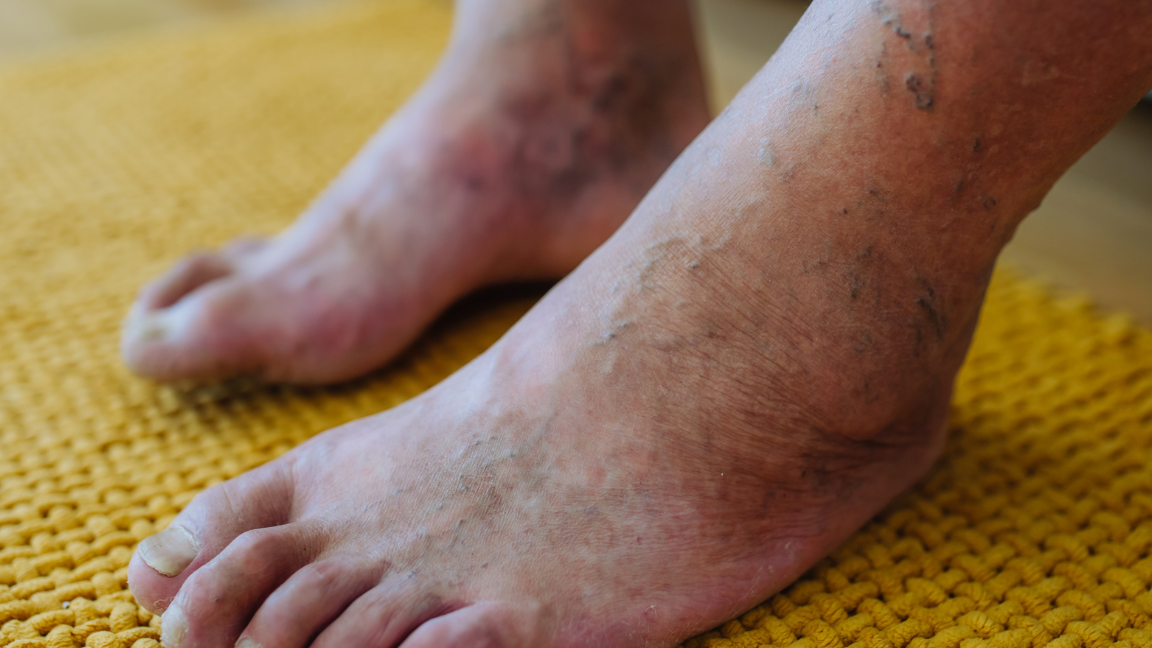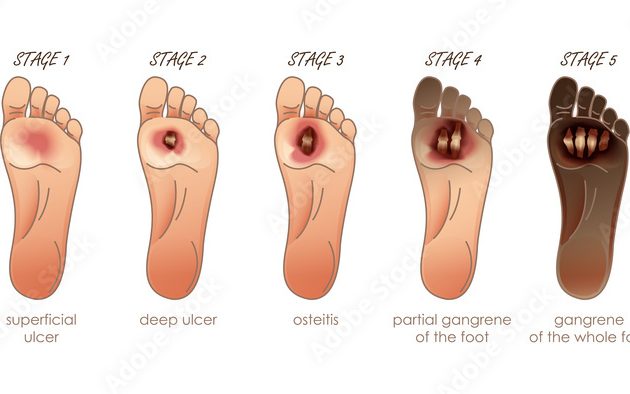
- 494
- 0
Diabetic Feet: A Complete Guide to Care, Caution, and Prevention
For individuals living with diabetes, foot care is not just a matter of comfort; it is a critical aspect of overall health. Diabetes can lead to complications that affect the feet, making diligent care and preventative measures essential. In this blog, we will explore how to take care of diabetic feet, highlight things to avoid, discuss the stages of diabetic foot, and delve into both treatment and prevention strategies.
Taking Care of Diabetic Feet:

- Daily Inspection:
- Perform a daily visual inspection of your feet. Look for cuts, blisters, redness, or any signs of infection. If you have difficulty seeing the soles of your feet, use a mirror or ask a family member for assistance.
- Proper Cleaning:
- Wash your feet daily with lukewarm water and mild soap. Ensure thorough drying, paying special attention to the spaces between toes, to prevent fungal infections.
- Moisturization:
- Keep the skin on your feet hydrated with a gentle moisturizer, avoiding the areas between the toes. Cracked or dry skin can lead to infections, so maintaining proper moisture is crucial.
- Nail Care:
- Trim your toenails straight across to prevent ingrown nails. If you find it challenging to trim your nails, seek professional assistance from a podiatrist.
- Proper Footwear:
- Wear well-fitting, comfortable shoes to prevent rubbing and pressure points. Ensure they provide adequate support and protection. Avoid tight shoes that can cause friction and potential injuries.
Things to Never Do to Diabetic Feet:

- Avoid Walking Barefoot:
- Always wear shoes, even indoors, to protect your feet from potential injuries, such as cuts, bruises, or burns.
- Say No to Hot Water Soaks:
- Hot water can cause damage to sensitive diabetic feet. Stick to lukewarm water for washing, and test the water temperature with your hand or a thermometer to ensure it’s safe.
- Don’t Attempt Self-Treatment:
- Avoid using over-the-counter products for corns, calluses, or other foot issues without consulting a healthcare professional. Improper treatment can lead to complications.
- Never Ignore Foot Pain:
- Persistent foot pain, numbness, or tingling should never be ignored. Report any unusual sensations to your healthcare provider promptly.
- No DIY Corn or Callus Removal:
- Leave the removal of corns and calluses to professionals. Attempting to remove them at home can lead to infections and complications.
The 5 Stages of Diabetic Foot:

- Stage 0 – At Risk:
- No open sores or wounds, but the presence of neuropathy or vascular disease increases the risk. Focus on preventive measures.
- Stage 1 – Superficial Ulcer:
- Superficial ulcers or sores are present on the skin’s surface. Prompt attention and proper wound care are essential to prevent progression.
- Stage 2 – Deeper Ulcer:
- Ulcers extend into the deeper layers of the skin. Infection risk increases. Medical intervention is crucial at this stage.
- Stage 3 – Abscess or Osteomyelitis:
- Infections reach the bone, posing a serious threat. Treatment involves aggressive management of infections and potential surgical interventions.
- Stage 4 – Gangrene:
- Advanced tissue death, often requiring amputation. Urgent medical attention is imperative to prevent further complications.
Treatment and Prevention Strategies:
1. Wound Care:
- Promptly clean and dress any wounds or ulcers. Seek professional assistance for proper wound care and infection management.
2. Regular Check-ups:
- Schedule regular check-ups with a podiatrist or healthcare provider to monitor the health of your feet, especially if you have neuropathy or vascular issues.
3. Blood Sugar Control:
- Maintain optimal blood sugar levels through medication, diet, and lifestyle modifications. Consistent blood sugar control is crucial for preventing complications.
To maintain optimal blood sugar levels through diet, you can contact here 👇
4. Foot Exercises:
- Engage in gentle foot exercises to improve circulation and maintain flexibility. Consult with your healthcare provider for personalized exercise recommendations.
To access more details about foot exercises and other workouts, please click the link provided to join 👇
5. Footwear Consultation:
- Regularly consult with a podiatrist to ensure you are wearing proper footwear that fits well and provides adequate support.
Conclusion:
Caring for diabetic feet requires a proactive approach that encompasses daily habits, cautionary measures, and regular professional guidance. By staying vigilant, adopting healthy practices, and promptly addressing any concerns, individuals with diabetes can significantly reduce the risk of complications and maintain optimal foot health. Remember, your feet carry you through life, and nurturing them is an integral part of managing diabetes and ensuring overall well-being.
Comment
Check Your EGFR
***We Promise, no spam!







